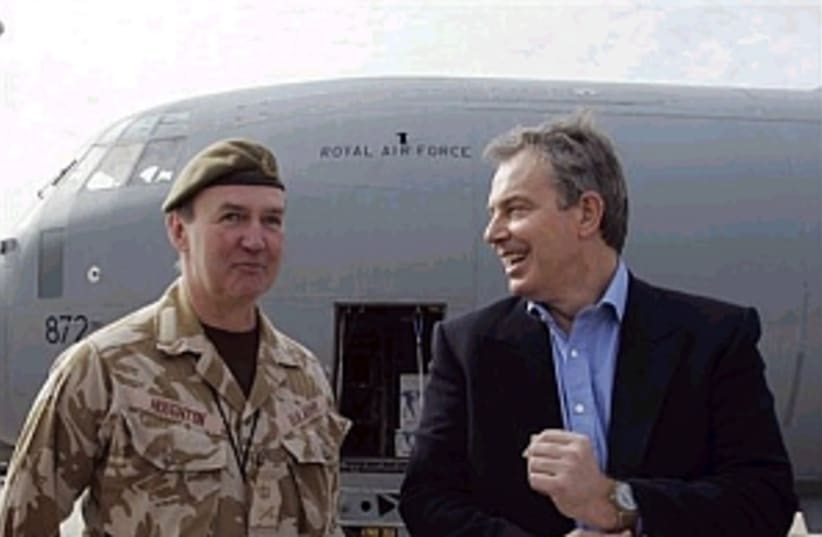| More about: | Tony Blair, Iraq, Saddam Hussein, Royal Air Force |
Tony Blair pays surprise visit to Iraq
Tells UK troops that defeating terrorism in Iraq would deal it a heavy blow worldwide.


| More about: | Tony Blair, Iraq, Saddam Hussein, Royal Air Force |